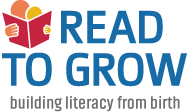By Stell Simonton – excerpted from Youth Today | July 18, 2016
Every young life starts out with promise, and the adults who love a child yearn for that child to have a bright future.
But what if a simple barrier at an early age sets a child up for failure?
 Difficulty in reading is such a barrier between a grade-level reading problem and, later on, incarceration in the juvenile justice system,” said Ralph Smith, managing director of the Campaign for Grade-Level Reading, a national collaboration of foundations, nonprofits, business leaders, and communities focusing on school success for children in low-income families.
Difficulty in reading is such a barrier between a grade-level reading problem and, later on, incarceration in the juvenile justice system,” said Ralph Smith, managing director of the Campaign for Grade-Level Reading, a national collaboration of foundations, nonprofits, business leaders, and communities focusing on school success for children in low-income families.
Reading is so foundational, the Campaign has a nationwide effort to bring all kids to reading proficiency by the end of third grade.
Cities like Orlando, Fla., have made literacy a cornerstone of their after-school and summer programs for kids. And a statewide campaign in Arkansas brings together school districts, teachers and volunteers to provide tutoring, mentoring and innovative summer literacy activities.
“There’s a very strong association between behavior problems and academic achievement,” said Deborah Stipek, former dean of the Graduate School of Education at Stanford University.
Stick and Sara Miles collaborated on research published in 2006 that followed children from first through fifth grade.
“We found that in first grade, achievement in literacy and reading predicted later aggression,” said Miles, who is now research director for the nonprofit Challenge Success.
“Our theory was that kids who are struggling as readers …” develop frustration and a negative relation to school. “It sort of snowballs,” Miles said.
They get more off-track as they get older.
“It can lead to low self-esteem and an antagonistic relation with school,” she said.
Chuang Wang, professor of educational research at the University of North Carolina, also has researched the link between reading and behavior.
“We found that students who have behavior problems also have problems in reading,” he said of a study involving second graders published in 2011.
“If you improve reading, then you might have less problem with delinquency,” Wang said. “They are highly connected.”
He cautioned that poor reading does not cause delinquency, however. Research shows correlation but not causation.
From a child’s point of view
Smith, with the Campaign for Grade-Level Reading, describes it this way: “Imagine being a fourth-grader who realizes they can’t read and apprehends that they are in serious trouble and no cavalry of adults is mobilizing to save them.”
“What’s the incentive to resist oppositional behavior … to be respectful of adults and trust adult authority?” he said. “You begin to understand how a young person … could get on a path that leads them to the juvenile justice system.”
Three vital areas need to be addressed according to Smith: the school readiness of young children, the chronic absenteeism that causes some children to fall behind and the loss of knowledge during the summer.
Click here for full article.
ShareJUL
2016

